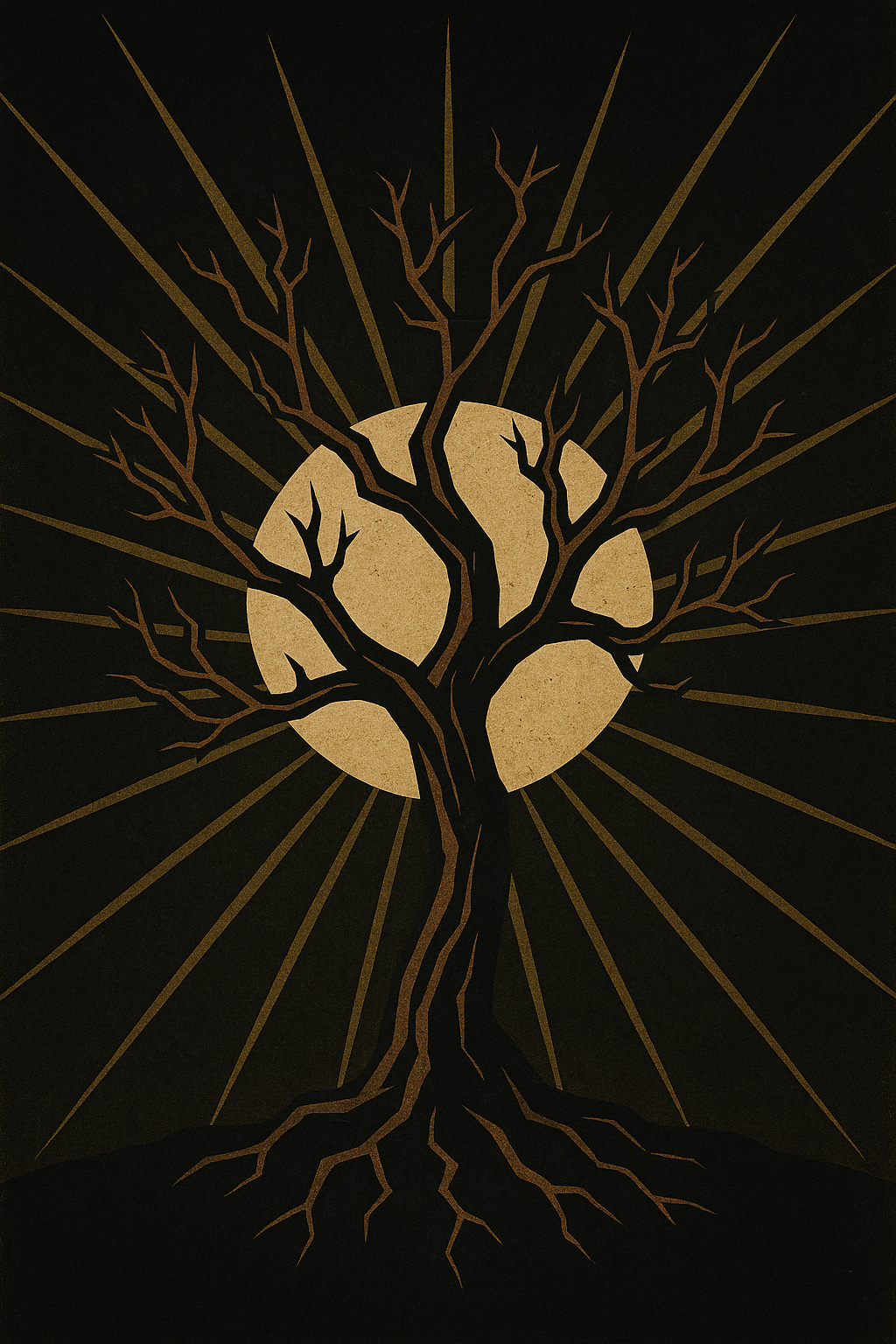Protest Songs 1 - Strange Fruit
Billie Holiday and The Song of the Century
The lights go down.
One woman in a halo of light.
The band wait for the count.
All night, songs about love,
lipstick on your collar,
city lights, loneliness you can dance to.
America is comfortable with that.
This is different.
She lifts her head.
Someone stands over her shoulder,
someone only she can hear.
The first note lands,
already knowing where to go.
A song is a photograph you can’t fold shut.
Years before this room,
a tree, two bodies,
a crowd looking up
with that calm, picnic gaze that says:
this is order, this is ours.
A schoolteacher sees it.
Ink rises in his throat like bile.
He writes a poem that feels like poison.
No soft fade.
No distance.
Just itself.
He doesn’t know his words
will one day fill this darkness.
This woman has already buried many things,
her childhood, her name, her lovers,
her safety.
When the song finds her, she understands
that it is no decoration.
Not another filler in her set.
If she sings, it is a crime scene.
They make the rules.
No clinking glasses.
No orders.
No applause until she is gone.
The room must sit with it.
No jokes to break the tension.
No sax to wash it clean.
She sings it like a charge sheet.
Every line stacks on the last
until the air itself feels guilty.
There are no heroes, only witnesses.
No key change, no escape hatch.
Just the slow unveiling
of what has always been there,
hanging slightly out of frame.
When the last word falls, it does not fade.
It just… stops.
Lights out.
She walks through the dark.
The crowd sits.
The suits stay away.
The airwaves stay clean.
A small label presses it anyway.
Somewhere, a needle drops.
Somewhere else, someone turns it off.
The men in offices hear it too.
They are paid to notice words like these.
They can’t ban a song for saying the truth.
They can’t unprint the photograph.
So they go for the voice itself.
Call it morals.
Call it narcotics.
Call it concern.
As time passes, they cage her,
leave her to die with a tube in her arm,
then let the lies tidy the scene.
Call it something else.
But understand: this is also part of the song.
You cannot separate the sound from the cost.
You cannot talk about protest music like a genre,
like choosing between metal and jazz.
It is a bill presented to power,
written in the singer’s own blood.
We are still here.
We are not finished.
We will be
That one word, over and over,
thrown like a lifeline across a barricade.
People in the streets.
In front of shields, under drones,
hands up, masks on,
they shout it back.
It looks the same on the page.
Short lines.
Plain speech.
The same country, the same wound.
She stood on a darkened stage
and sang to the trees.
Kendrick stood outside
and sang to the streets.
It is the same crime in a new verse.
Both say: here is what you have done,
and here we still are.
The history of protest music
is just the history of people
refusing to stop singing.
A poem written by a Jewish teacher.
A voice that made it immortal and paid the price.
A chorus in another century that refuses to move.
When she sang in that dark room,
and when his voice goes over sirens and smoke,
they are not separate stories.
They are the same country, told,
that its strange fruit
is still hanging,
and its children are still singing
about how they intend
to survive it.
Notes
Billie Holiday (1915–1959)
“Strange Fruit” began as a 1937 poem by Abel Meeropol, a Jewish teacher from the Bronx, written after he saw a photograph of a lynching in Indiana. He and his wife set it to music and performed it in small political circles. Holiday first sang it in 1939 at Café Society in New York, the first integrated nightclub in America.
She performed it with strict ritual: lights out, no service, no encore. The song was banned on Southern radio and rejected by Columbia Records; she recorded it for the small Commodore label instead. It sold more than a million copies.
Afterward, the U.S. government pursued her relentlessly. Harry Anslinger, head of the Federal Bureau of Narcotics, targeted her with arrests and surveillance. When she was dying in 1959, agents handcuffed her to a hospital bed and seized her savings. She died under guard.
In 1999 Time Magazine declared it “Song of the Century”
Kendrick Lamar — “Alright” (2015)
Seventy-six years later, Lamar wrote another song about the same country and the same wound. “Alright,” from To Pimp a Butterfly, became a rallying cry during the Black Lives Matter protests. Crowds chanted the chorus “We gon’ be alright” in the face of police lines and tear gas.
Both songs describe what America does to its black citizens and how they answer back.




I love this!!
https://m.youtube.com/watch?v=7lMQWnRBQr0 Hugh will always be friend in my heart